'Doping is still really bad today': Former Belgian champion reveals own blood doping past in gritty autobiographical film
Kenneth Mercken was on his way to becoming a pro rider, and was prepared to do and take anything to help him achieve that goal
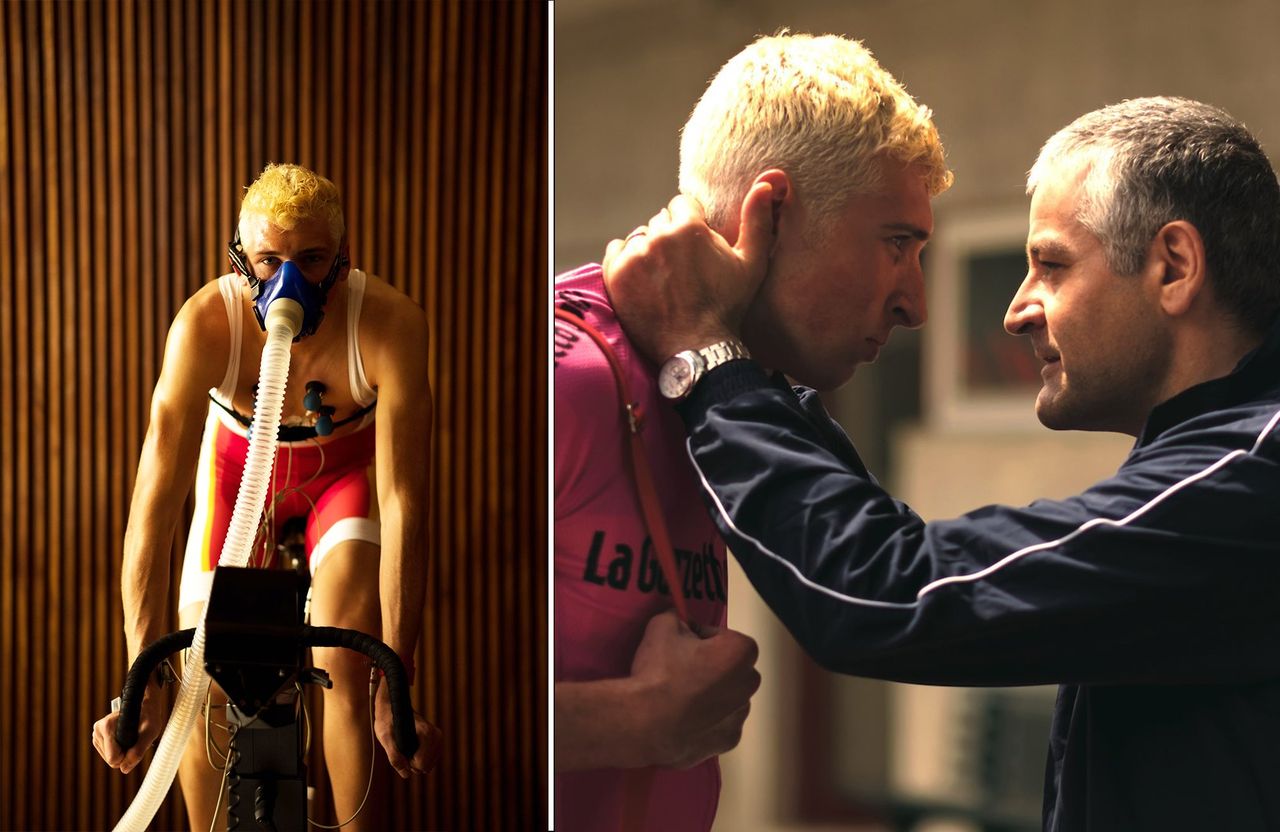
The Racer (Kenneth Mercken)
"Cycling is in your blood. It's passed on from father to son. And if it's in you, you can fight it all you want, you can't escape it.
"But if there's one thing I've learned from my dad, it's fighting. Fighting against everything and everyone. Especially against yourself."
These are the opening lines of Kenneth Mercken's 'The Racer', a film about his own experiences of the murky world of doping in professional cycling.
Mercken was an up and coming prospect, winning a national amateur championship in his homeland of Belgium in 2000. On his way to becoming pro, helped along by performance enhancing drugs, the now 43-year-old turned his back on the sport and instead enrolled at film school, graduating in 2011.
This year he's released an autobiographical film about his career. The central conflict of 'The Racer' isn't between the young Belgian rider and the performance enhancing drugs, at the turn of the millenium that was par for the course. Instead, Mercken's sullen father, a rider who never fulfilled his own ambitions, provides his son with a route into the sport, encouragement to dope, and also the emotional baggage that culminates in the young rider's eventual implosion.
"When I was 14 I wouldn't even swallow a vitamin, so I was principally against it," Kenneth says of his route into doping. "It kind of started very innocently. When I was 16 years old I started to use some caffeine and that worked really well for me, but you can't call that doping really.
Get The Leadout Newsletter
The latest race content, interviews, features, reviews and expert buying guides, direct to your inbox!
"But it did kind of ease the way in, and at a certain point I went to the doctor and he actually extracted some blood and enriched it. Technically, that can be called blood doping because it's taking it out of the body and re-infusing it. But of course, in those days it was seen as innocent but It was kind of shady."
Mercken's story is a familiar one, of lines incrementally being crossed until a dose of EPO is no bigger of a deal than your morning coffee.
"Once you get used to the needles [it becomes normal]. The first time I injected myself was like with magnesium, and of course that's a mineral so it's not doping, but that kind of eases the way to other products," Mercken says. "It's also culture within the sport, there are guys shooting around you, you get the feeling that you will never make it if you don't."
Whilst the riders in the film depicting Mercken and his former team-mates just look like any other skinny two-wheel obsessives, it's important to remember these riders were barely adults, while the real-life grown-ups were the ones providing and encouraging the use of PEDs.
"It just became totally normal," Mercken says. "I remember a moment in Italy and my team boss gave me a flagon of EP in a clandestine way and said tuck it away in your trainers, make sure the others don't see it. I then went upstairs and they were all shooting EPO and in the meantime all talking about the weather.
"In one way it had become something banal, but in another way everybody knew this was something big."
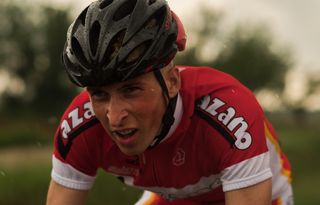
The depiction of the real, lived experience of doping is done with such candour that it's refreshing, as well as being obviously concerning. The stress of the young men trying to make it to the next level in their career while trying to make peace with the fact they're cheating often proves combustible. There are fallings-out and emotions are nearly always running high. Mercken's is a rare story about cycling where the finish line and who crosses it is of little importance.
While the Belgian's decision to start doping was gradual, getting out of that world was a decisive moment.
"I went to see the doctor and she told me that I had to use a growth hormone because of my delayed puberty. And I was like 'yeah let's do it'. Everybody else was doing it. Why not me? And then she said 'hold on, you're gonna have to do it your whole career every day.'
"Then she told me I might have a higher chance of cancer if I take it that much. And really the moment I heard those words was the moment I realised that it was over, it was an epiphany. Then back in the team house I decided to do film school or to go to acting school. I really made the decision on a whim like that.
"Basically, one day woke up. I realised that it was all crazy and I'd gone too far."
And what does he think of the doping landscape now? Having retired before his pro career had really begun, and with no skin in the game anymore, Mercken is unfailingly honest with his insight.
"I think it's a bit better as the time when the film is situated was a really crazy time and there's a lot more products that can be traced nowadays," Mercken says, before admitting: "I think it's still really bad.
"Every once in a while there's a new product, which they cant trace. They're still using EPO, still using a lot of cortisone. Yeah, it's still really bad I think, and maybe it's just part of the sport, I don't know. And I don't know what's going to happen when genetic doping is going to be developed or become widespread."
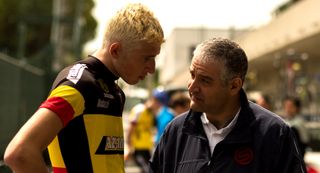
Mercken does, however, see hope for the future due to the fact that young riders are now able to compete in some of the biggest races, potentially hinting at the likes of Remco Evenepoel, who won the Clásica San Sebastián this year at the age of just 19.
"I'm still hopeful because I think nowadays you see young kids that are 19 years old that can win big races with the pros again, that was impossible in my day.
"So that means something has changed and that there's a different mentality that now it's possible, because in my day you'd have to get used to all those products and after 10 years, maybe you you get to a good level. So I think nowadays it is possible for somebody who's clean and got a lot of balance to get very far and that makes me hopeful."
And what about his Dad? How did he react to being portrayed as such a brutal character by his own son?
"The first time he saw the film, was at the film festival in Ghent at the international premiere and his first reaction was that I didn't portray him as brutal enough," Mercken laughs.
"I think it was just a macho reaction, to hide himself behind that. But afterwards we had a few drinks and suddenly he became silent, and then he told me 'I was wrong'.
"That was very strange for me to hear because he never said that to me. And that's the only time he ever said it to me, he probably won't repeat it anymore. I felt confused and maybe maybe afterwards happy you know that that maybe the film has a meaning and maybe it can make people change. Even him. Make him change his mind and realise things."
The film opens with his Dad winning a local race, and a pre-teenage Mercken tugging at his jersey trying to get his attention, but he is ignored as his father revels in the glory and adulation of TV cameras and fans.
The film closes with grainy home footage of the same scene, but this time it's the real Mercken and Mercken Snr. Despite the theatrics and metaphors used in the film, Mercken coughing up blood after collapsing on the side of the road during the baby Giro or a crazed Russian team-mate firing a gun in their team's guest house, this real moment does more to portray the pain of professional cycling than double-digit gradients ever could.
The Racer (Coureur) had its UK Premiere at Raindance Film Festival and will be available on digital download from November 4.

Thank you for reading 20 articles this month* Join now for unlimited access
Enjoy your first month for just £1 / $1 / €1
*Read 5 free articles per month without a subscription

Join now for unlimited access
Try first month for just £1 / $1 / €1
Jonny was Cycling Weekly's Weekend Editor until 2022.
I like writing offbeat features and eating too much bread when working out on the road at bike races.
Before joining Cycling Weekly I worked at The Tab and I've also written for Vice, Time Out, and worked freelance for The Telegraph (I know, but I needed the money at the time so let me live).
I also worked for ITV Cycling between 2011-2018 on their Tour de France and Vuelta a España coverage. Sometimes I'd be helping the producers make the programme and other times I'd be getting the lunches. Just in case you were wondering - Phil Liggett and Paul Sherwen had the same ham sandwich every day, it was great.
-
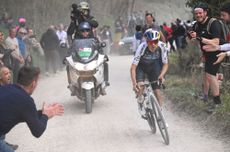 Tom Pidcock’s Q36.5 receive Giro d’Italia wildcard invite along with Tudor Pro Cycling
Tom Pidcock’s Q36.5 receive Giro d’Italia wildcard invite along with Tudor Pro CyclingTeam Polti Visit Malta and VF Group BardianiCSF - Faizane also receive invitations from RCS
By Tom Thewlis Published
-
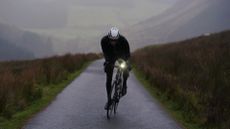 Be seen all year round with 35% off Magicshine bike lights in the Amazon Big Spring Sale
Be seen all year round with 35% off Magicshine bike lights in the Amazon Big Spring SaleThis is your last chance to seize a deal on some of the best bike lights with daylight running features. Act fast, as the sale ends at midnight tonight
By Matt Ischt-Barnard Published
-
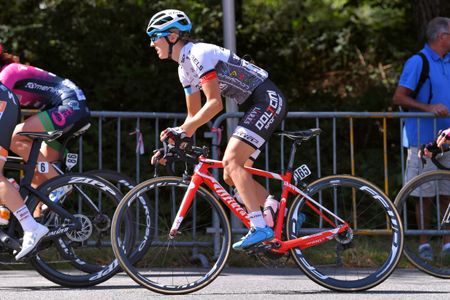 French cyclist given 10-month suspended prison sentence for doping
French cyclist given 10-month suspended prison sentence for dopingMarion Sicot said doping formed "an integral part" of cycling
By Tom Davidson Published
-
 French cyclist faces suspended prison sentence and €5,000 fine in doping trial
French cyclist faces suspended prison sentence and €5,000 fine in doping trialMarion Sicot, who admitted to taking EPO in 2019, is currently on trial in France
By Tom Davidson Published
-
 Steroids found in pro cyclist’s anti-doping test sample
Steroids found in pro cyclist’s anti-doping test sampleAntwan Tolhoek has been provisionally suspended by the UCI while proceedings are ongoing
By Tom Davidson Last updated
-
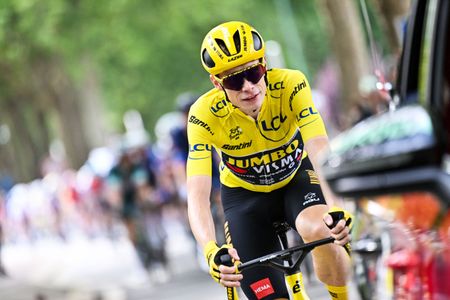 Jonas Vingegaard reveals he missed an anti-doping test
Jonas Vingegaard reveals he missed an anti-doping test'It's not great to have a missed test hanging over you,' says Tour de France champion
By Tom Davidson Published
-
 Jumbo-Visma rider Michel Hessmann suspended after positive anti-doping test
Jumbo-Visma rider Michel Hessmann suspended after positive anti-doping testThe 22-year-old's out-of-competition sample detected the presence of diuretics
By Tom Davidson Published
-
 Former British Cycling doctor Richard Freeman given four-year doping ban
Former British Cycling doctor Richard Freeman given four-year doping banFreeman chose not to defend himself before the anti-doping panel
By Tom Davidson Published
-
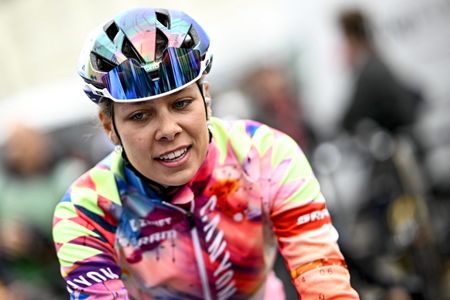 'We are not cheaters' says Belgian rider Shari Bossuyt after anti-doping positive
'We are not cheaters' says Belgian rider Shari Bossuyt after anti-doping positiveThe Canyon-SRAM rider tested positive for Letrozole in an anti-doping control in March
By Tom Davidson Published
-
 "Failing that drug test was the best thing that had ever happened to me"
"Failing that drug test was the best thing that had ever happened to me"Abuse victim and disgraced cycling champion Geneviève Jeanson finds solace in return to bike racing
By Anne-Marije Rook Published